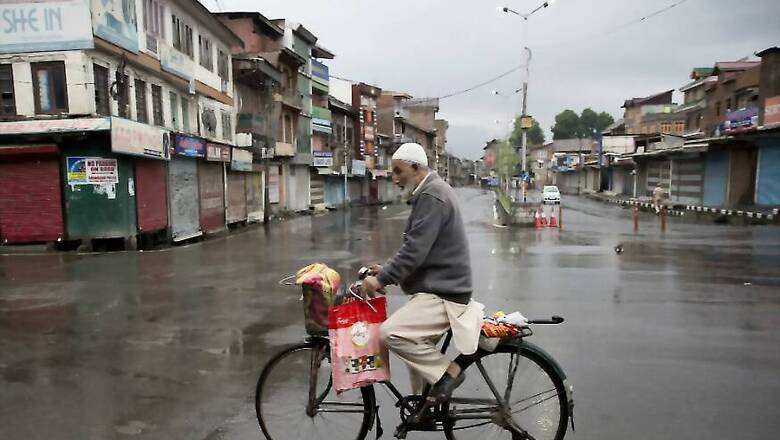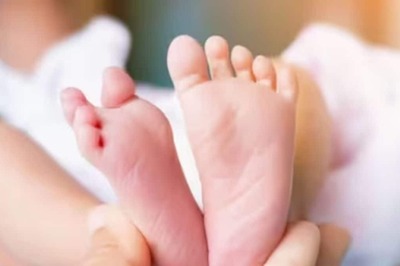
views
New Delhi: Asserting that abrogation of the special status of Jammu and Kashmir was in the interest of the nation and the erstwhile state, the Central government has told the Supreme Court that it spent three times more on a resident of J&K than the rest of India, but development remained elusive because of a discriminatory regime under articles 370 and 35A.
"During 2017-18, an average amount of Rs 8,227 per person was spent in rest of India, whereas Rs 27,358 per person was spent in Jammu and Kashmir. Despite this overwhelmingly disproportionate expenditure, it was observed the developmental benefits were not percolating to the citizens of the erstwhile state,” read the Central government's affidavit in the top court.
The affidavit by the Ministry of Home Affairs sought to emphasise that Articles 370 and 35A, in fact, impeded full integration of Jammu and Kashmir with India and acted as barriers in overall development despite the central government’s large monetary support.
“From 2004 to 2019, the Government of India spent Rs 2,77,000 crore for the erstwhile state of J&K. During 2011 and 2012, while only Rs 3,683 per person was given to the rest of India, Rs 14,255 per person was given to the erstwhile state," said the affidavit.
This regime under Articles 370 and 35A worked to the detriment of the State itself and has significantly contributed to the grave problems of terrorism, militancy and separatism which plague it.
“Inimical forces from across the border have exploited the situation. The overall economic development in the State has been severely hindered on account of these factors, and, as a result, the erstwhile State has failed to live up to its full development potential,” the affidavit told the Supreme Court.
According to the government, the special status provided a discriminatory regime against citizens of the erstwhile state from the rest of the country as well as a large number of residents of J&K who were not ‘state subjects’.
"Women of the erstwhile state were also discriminated against if they chose to marry a non-permanent resident," stated the affidavit.
The Centre maintained that negation of the articles was, hence, a remedial constitutional measure taken in the interest of the region itself, as well as in the larger interest of the country, so that peace and prosperity may be restored in the region.
“And the obstacles sought to be created, over the years, by certain elements, to the fullest integration of J&K with the rest of the country be removed,” added the MHA.
The affidavit added that there was no illegalities in use of special power under Article 370 itself to negate the effect of special status of J&K and that there have been at least three occasions in the past when the President used this power to issue orders.
The government further defended all subsequent resolutions and legislation passed in Parliament to bifurcate the erstwhile state.
A Constitution Bench, headed by Justice NV Ramana, is scheduled to hear a clutch of cases on November 14 in which abrogation of the special status has been challenged.

















Comments
0 comment